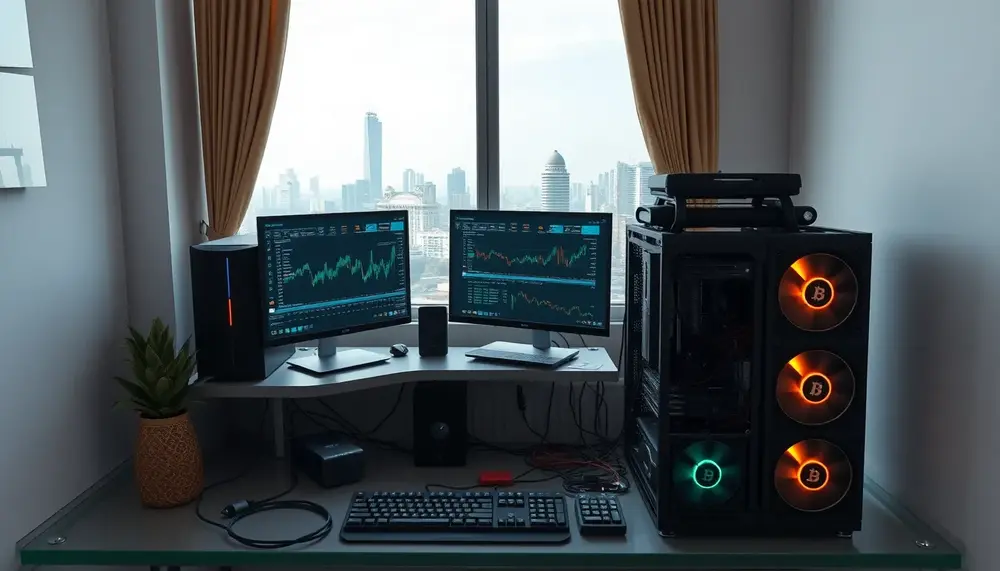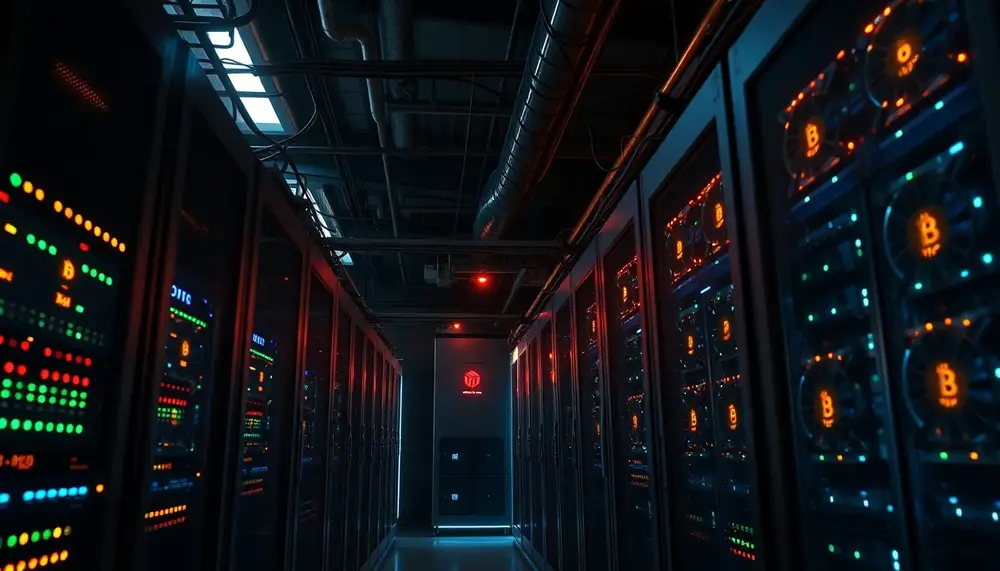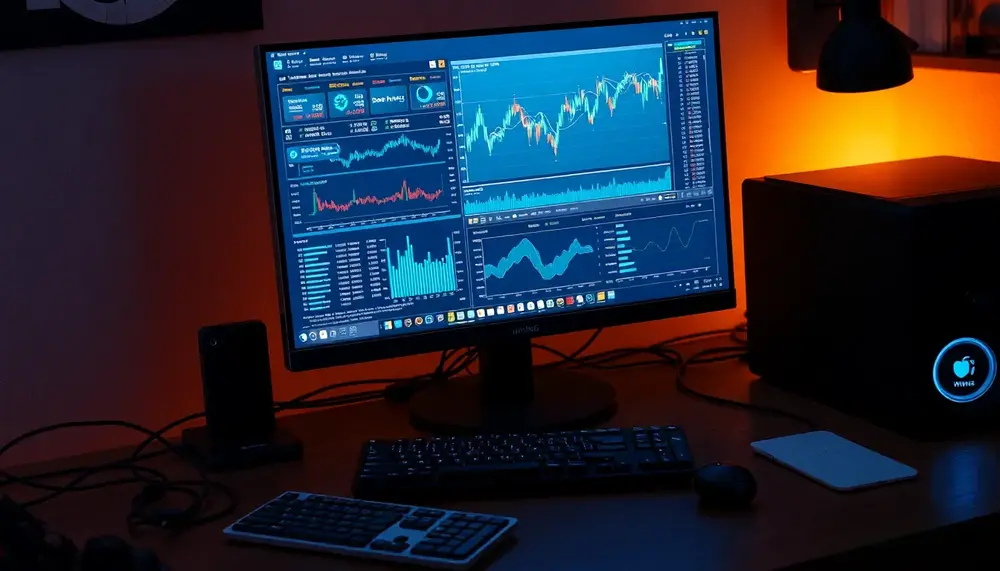Software
Software
In the realm of Bitcoin mining, the role of software is pivotal and multifaceted. Addressing the broad umbrella of mining software, we cover various software tools used to mine Bitcoin and optimize the process.
Understanding Bitcoin Mining Software
The term software refers to a set of instructions that tells your hardware how to work. In the context of Bitcoin mining, software facilitates communication between the miner’s hardware (the equipment that mines Bitcoin) and the blockchain. Essentially, it instructs these inanimate components on how to collaborate in the quest for a common goal - solving complex mathematical problems and earning Bitcoins in exchange. It's where the human action melds with the relentless precision of the machine.
How Does Mining Software Work?
This ingenious blend of software and hardware does much more than just linking two components. It provides real-time information on mining performance, such as speed, hashrate, and temperature. Moreover, it also fetches the transactions from the Bitcoin network that the hardware has to verify to earn Bitcoins.
Choosing the Right Mining Software
As easy as it may sound, finding the ideal software for Bitcoin mining can be a little daunting. There's a considerable range of options available, each coming with a unique set of features. The right choice of software can depend on factors like your hardware setup, the level of user experience, and specific mining goals.
The Impact of Software Updates
The continuous evolution of Bitcoin mining practices necessitates regular updates in software. Updates often come with improvements and fixes for identified glitches, enhancing the efficiency of the mining process.
Main Software Types
In the Bitcoin mining universe, software usually falls into two main categories: solo mining software and pool mining software. The first allows individual miners to operate independently, controlling their hardware directly. On the other hand, pool mining software lets groups of miners collaborate, increasing their chances to solve a block and share the rewards. A choice between the two types primarily depends on the miner's resources and strategy.
In conclusion, in the complex and lucrative field of Bitcoin mining, software serves as the linking pin, the director, harnessing the brute force of hardware in a strategic, directed manner to mine those coveted Bitcoins. It's the invisible force that pushes forward the machinery of the digital gold rush.
Blog Posts with the term: Software

This guide simplifies Monero solo mining with XMRig, covering setup and optimization to mine efficiently. It explains the benefits of using XMRig, necessary hardware requirements, and how to set up a Monero wallet for secure fund management....

Monero mining with CPUs is accessible and cost-effective due to the RandomX algorithm, which optimizes CPU performance over GPUs; top processors include AMD Ryzen 9 3950X and Intel Core i9-10900K. Benchmarking involves measuring hash rates and power consumption using software...

The article discusses the initial investment required for crypto mining in India, emphasizing costs related to hardware, setup, and software. It also highlights key technical specifications needed for mining rigs, such as GPUs and cooling systems, while stressing the importance...

A mining pool is a collaborative group of miners who combine their computational resources to increase the likelihood of successfully mining cryptocurrency blocks and sharing rewards, essential due to the high power demands that make solo mining nearly impossible. Setting...

Cloud mining allows individuals to lease processing power from remote data centers for cryptocurrency mining, offering convenience and lower upfront costs but potentially reduced earnings and risks of scams. Hardware mining involves owning equipment with greater control and profit potential...

This guide provides a comprehensive overview of setting up an Ethereum mining rig, covering essential components like GPUs and motherboards, as well as key concepts such as Proof of Work (PoW) and hashrate. By the end, readers will understand how...

Real USDT mining apps allow users to mine Tether (USDT) directly from their smartphones or computers, offering a simplified and accessible entry point for both beginners and seasoned miners. These apps feature user-friendly interfaces, automated mining options, real-time earnings tracking,...

Monero mining on AMD Ryzen CPUs is popular due to their high performance and efficiency; this article provides a guide for optimizing these processors, covering hardware selection, BIOS settings, and software configuration to maximize mining profitability. Key considerations include core...

Mining XRP directly is not possible; instead, miners can earn XRP by mining other cryptocurrencies and exchanging them for XRP. This guide covers setting up a secure wallet, choosing the right software like Unmineable or NiceHash, and configuring your mining...

Bitcoin mining apps can transform your device into a mini mining rig, but with the market flooded by both genuine and dubious options, it's crucial to verify platforms like Google Play for reliability through download numbers, ratings, user reviews, and...

Setting up a mining pool involves configuring the correct URL and port settings to ensure efficient and secure operations, with considerations for cryptocurrency type, geographical location of pools, reputation, fees, supported coins, and security protocols. Understanding commonly used ports like...

Bitcoin mining pools are groups of miners who combine their computing power to mine Bitcoin blocks and share the rewards. Joining a mining pool increases the frequency of payouts and reduces the volatility of the mining process, making it a...

This article explores the connection between Bitcoin mining and renewable energy, specifically focusing on solar, wind, and hydropower sources. It highlights the shift towards renewable energy in Bitcoin mining driven by environmental concerns, economic benefits, and advancements in technology. The...

When cashing out crypto from mining, choose your payout coin wisely by considering transaction fees, market volatility, liquidity, and future potential; also understand minimum withdrawal requirements to ensure efficient transactions....

